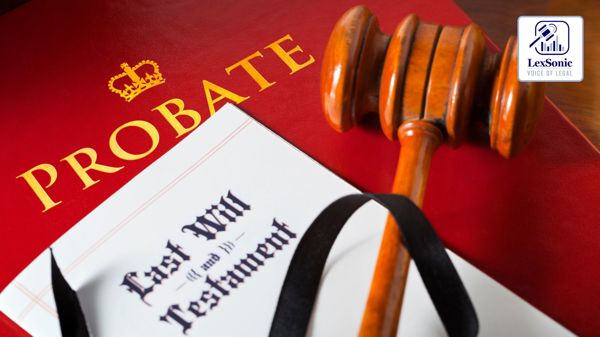Son Wins Mumbai Will Dispute as Court Grants Probate.
10 June 2024
Wills/Trusts >> Family Law | Probate of Wills >> Inheritance | Wills under Indian Succession Act >> Inheritance
A Mumbai court is currently hearing a testamentary suit regarding the validity of a will allegedly executed by Ranchhodlal Manilal Chokshi on July 6th, 2000. The deceased's son, the plaintiff in the case, filed for probate of the will in 2015. While the deceased's widow and one daughter consented to the probate, the other daughter, the defendant, has challenged the will's authenticity.
Background:
The crux of the case revolves around several key questions:
- Was the will properly signed and witnessed, following legal requirements?
- Did someone forge the deceased's signature?
- Does the will contain unclear or ambiguous language regarding the distribution of assets?
- Were there any suspicious circumstances surrounding the creation of the will?

The legal burden falls on the plaintiff, the son, to demonstrate the validity of the will. Conversely, the defendant daughter needs to present evidence to support her claims of forgery, ambiguity, or suspicious circumstances.
Evidence Presented:
The son has submitted the original will, affidavits from himself and the deceased's widow (who claims to have witnessed the signing), and documents containing the deceased's verified signature for comparison. Notably, the defendant has not presented any witnesses or counter-evidence. A point of contention arose regarding handwriting proof. The defendant argued that the plaintiff needed to prove the handwriting of the attesting witnesses, as mandated by Section 69 of the Indian Evidence Act. However, the court ruled that Rule 384 of the Bombay High Court (Original Side) Rules takes precedence in this case. Since the widow's affidavit confirms she witnessed the signing, this rule is satisfied.
Court's Reasoning:
The court meticulously examined the evidence presented by both parties. Here's a breakdown of the court's reasoning:
- Proof of Proper Execution: The plaintiff provided the original will, witness affidavits (one being the deceased's wife), and documents with verified signatures of the deceased. The court deemed this sufficient proof.
- Delayed Probate Filing: The defendant argued that the lengthy delay in filing for probate (7 years) raised suspicion. The court, however, considered the later dispute between the siblings regarding a property transfer as a legitimate reason for the delay.
- Natural Distribution of Assets: The court found the distribution of assets outlined in the will to be reasonable and not suspicious.
- Acceptance of Benefits Binds Defendant: The defendant's signature on receipts acknowledging benefits received under the will prevented her from contesting its validity, as per the principle of "approbation and reprobation."
- Clarity of the Will's Content: The court concluded that the will's language was clear and unambiguous regarding the distribution of assets.
Court's Decision:
Based on the presented evidence and reasoning, the court ruled in favor of the son, granting probate to the will. This verdict allows the will to be legally enforced for distributing the deceased's estate. The contesting daughter will also be responsible for covering the court costs.
Indian Succession Act, 1925 Bankers Books Evidence Act, 1891 Indian Evidence Act, 1872
